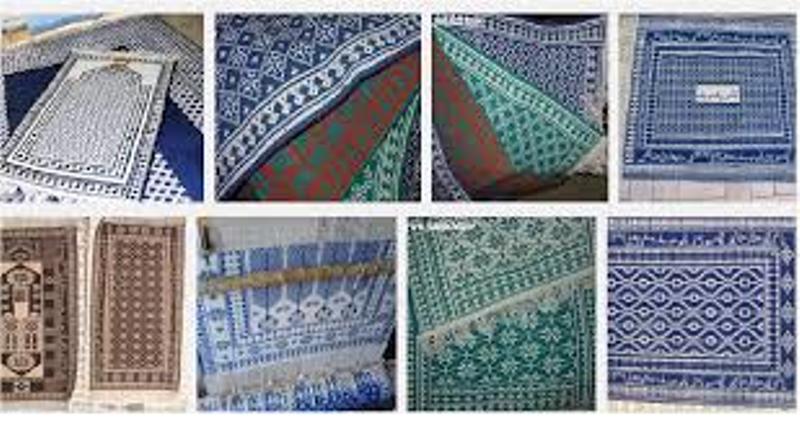
Ziloo is one of the oldest types of handmade floor coverings in Iran and has been woven in Meybod (55km north of Yazd) for many years. It has proven to be one of the most suitable and most enduring floor coverings, especially in desert areas.
Authorities at Iran Cultural Heritage, Handicrafts and Tourism Organization (ICHHTO) say that the WCC’s Evaluation Committee had a favorable view during their recent visit to Meybod and its craft of ziloo weaving, said Mohammadreza Dehqan Merhjardi, the deputy director general of ICHHTO in Yazd Province.
In an interview with Iran Daily, he elaborated on the latest status of Meybod’s application to register ziloo with the WCC and craft of ziloo weaving in Iran.
IRAN DAILY: Could you please explain the process of registering ziloo at WCC?
MOHAMMADREZA DEHQAN MERHJARDI: For any type of handicrafts up for evaluation by the WCC, must first be registered in the National Heritage List. In 2016, the craft of ziloo weaving in Meybod was registered nationally and soon thereafter preparations were made to meet the WCC requirements.
The WCC’s Evaluation Committee then visited Iran to observe ziloo and the city for themselves. They advised against the timing of the registration, saying that since Tabriz had been officially accredited with the title of ‘Global Handwoven Rug City’ just a while ago, the WCC may come down against the idea of ziloo registration at this time.
The authorities at ICHHTO then decided not to submit the application for Meybod to the WCC Regional Secretariat so that the country does not miss its chance for registration.
WCC specialists believed that ziloo was a kind of carpet, especially since in Iran carpet is a general term applied for any kind of floor covering. However, when the Committee’s specialists again visited the city just weeks ago, they were convinced that ziloo, like kilim and jajim, is a special kind of floor covering in Iran which is totally different from carpet.
The specialists visited the workshops and training classes for weaving ziloo, the Ziloo Museum, and some academic centers involved in the field.
What advantages does ziloo have over other floor coverings?
Ziloo is made of pure cotton and does not cause any allergy. Unlike other floor coverings, there is no electricity charge in ziloo and its static electricity is nil. All these qualities have led to ziloo being dubbed ‘healthy floor covering’.
What qualities are evaluated by the WCC for global registration of a craft city? And why, from numerous crafts, ziloo was chosen as the craft of Meybod?
Yazd and Meybod have other crafts too, like pottery, but Lalejin, a city in the northwest Hamedan Province, had already been designated as the ‘World Pottery Capital’ in 2016. The crafts submitted to the WCC must also be economically viable for the city representing them.
At present, there are more than 1,000 ziloo weavers engaged in 200 workshops in Meybod whose details have been registered in our data bank system. The number of ziloo workshops, however, is far outnumber this since many ziloo weavers work at home and the details of some weavers have not been registered. We have also developed a software where weavers can register their particulars and can also use the platform to sell their products.
Are you optimistic that the WCC specialists will finally approve the ziloo registration?
Upon leaving Iran, the WCC specialists expressed satisfaction about the global registration of ziloo. There seems to be no problem for this to take place. The specialists have submitted the case to their colleagues in other continents and we expect to get the final decision in three or four months.
What are the benefits of the global registration of ziloo?
In case ziloo gets registered at the WCC, it will be recognized by more artists and art lovers internationally. The global registration also will be a boon for the tourist industry in the city, paving the way for more tourists to visit Meybod.
The recent visit by the WCC specialists made Meybod bustling with activities; symbols of city crafts were present at every corners and many ziloos were sold as well.
Source: Iran Daily
9060**1771
Follow us on Twitter @IrnaEnglish
 solhkhabar | Peace International News Agency Peace International News Agency , Peace News , International Agency News of Peace
solhkhabar | Peace International News Agency Peace International News Agency , Peace News , International Agency News of Peace